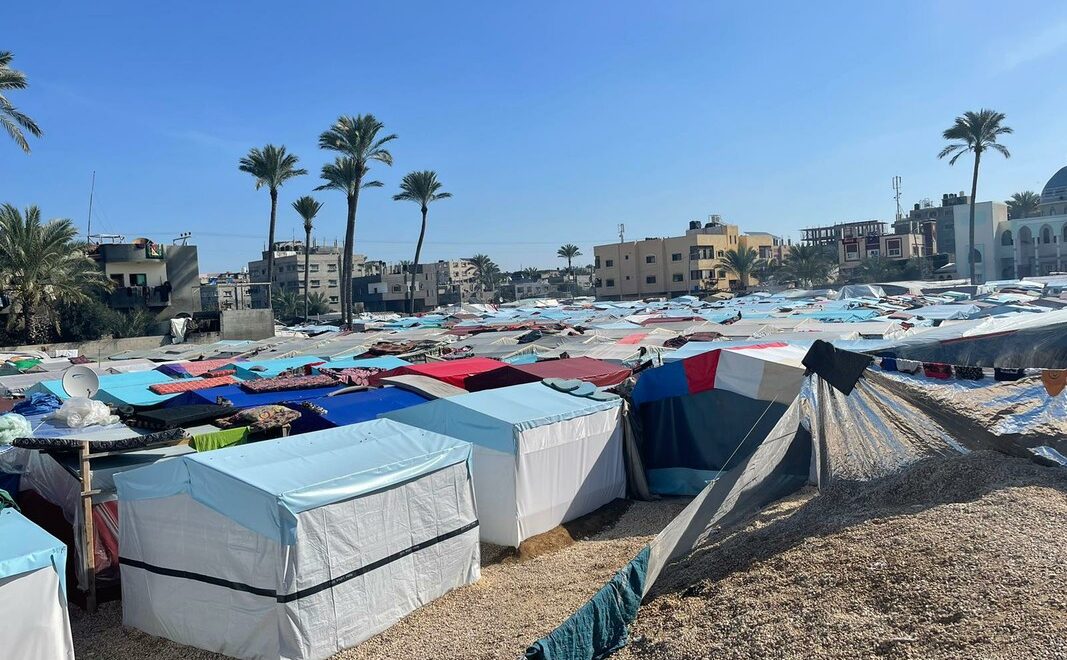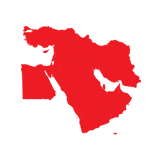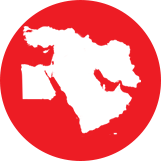Amid mounting concerns of an impending ground invasion in Rafah, the most southern zone of the besieged strip, ActionAid is warning that any intensification in attacks on the governate would have utterly disastrous consequences. Currently harboring over half of Gaza’s entire population, more than five times its usual population, any attacks would undoubtedly cause a high number of casualties and make the distribution of aid even more challenging.
There is nowhere left for people in Gaza to flee. More than 85% of its 2.3 million inhabitants have been forced to leave their homes over the last four months, with many displaced multiple times. The huge influx of people arriving in Rafah has already put an enormous strain on infrastructure and resources, yet people are continuing to arrive in their thousands because they quite literally have nowhere else to go. Overcrowding is extreme, with any available space taken up by tents, some of which are home to up to 12 people and there is often only a single toilet that hundreds of people must share.
Raneem, 21, who is also living in a school shelter, said:
“It is a major crisis: there is no water, no cleaning materials, few bathrooms, and there are a lot of people from outside [the shelter] coming in to use them. The water flows once every three days, and just for a half an hour, and then it stops. It does not flow continuously at night, and there are no toilet paper or cleaning materials. “
Meanwhile, food is becoming so scarce that people are resorting to eating grass, ActionAid has learned. Every single person in Gaza is now hungry, and people have just 1.5 to 2 liters of unsafe water per day to meet all their needs. Without enough to eat and without adequate clothing for the cold and rainy weather, people are more susceptible to diseases and infections, which are rapidly spreading through the population.
Iman is a mother of four currently living in a displaced persons camp. Both she and her husband are severely visually impaired, which makes coping with their current conditions even harder. She said:
“It is very difficult for someone who is visually impaired to live in a tent. I cannot do my laundry, cannot cook, and cannot make a fire to cook. The environmental pollution here is causing diarrhea, vomiting, and stomach aches, not to mention the emotional distress we are facing. Life is very difficult. Even those who survived the Nakba in 1948 said these are darker times than back then. Thankfully bread is available again, but we sadly don’t have the money for it.”
Riham Jafari, Advocacy and Communications Coordinator at ActionAid Palestine said:
“We are deeply concerned by reports of a potential ground invasion in Rafah and increased airstrikes on the area. Let us be absolutely clear: any intensification of hostilities in Rafah, where more than 1.4million people are sheltering, would be absolutely disastrous. More than 27,000 people have already been killed in this months-long nightmare in Gaza: it is impossible to see how this number wouldn’t soar even higher if the final remaining supposedly safe place in the strip came under attack. Where on earth is Gaza’s exhausted and starving population supposed to go?
People are now so desperate that they’re eating grass in a last attempt to stave off hunger. Meanwhile infections and diseases are running rampant amid such overcrowded conditions. The only thing that will stop this situation spinning even further out of control is an immediate and permanent ceasefire – it’s the only way to stop more lives being lost and to allow enough lifesaving aid to enter the territory.”
ENDS
For media requests, please email Jenna.Farineau@actionaid.org or call 202-731-9593.
Spokespeople available:
- Niranjali Amerasinghe, Executive Director of ActionAid USA
- Riham Jafari, Coordinator of Advocacy and Communication for ActionAid Palestine
About ActionAid
ActionAid is a global federation working with more than 41 million people living in more than 71 of the world’s poorest countries. We want to see a just, fair, and sustainable world, in which everybody enjoys the right to a life of dignity, and freedom from poverty and oppression. We work to achieve social justice and gender equality and to eradicate poverty.


